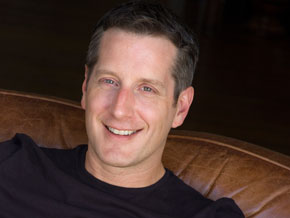Dr. Hurt Me

Photo © 2010 Jupiterimages Corporation
When it comes to prescription pill addiction, how much blame can be placed on the physician? According to the National Institute on Drug Abuse, almost 6 percent of American woman are using prescribed medications for a "boost." Interventionist Brad Lamm talks about the fine line of doctor-patient relationships. Plus, the warning signs to look for if you think a loved one might be in trouble.
As Dr. Conrad Murray is thrust back into the headlines and questions abound about how the medical care he gave Michael Jackson contributed to the King of Pop's death, I watch with a combination of frustration and hope. I am frustrated by the media and viewing public's shock and fascination at the role his physician played in administering a lethal dose of Diprivan (propophyl). I am hopeful because Michael Jackson's sad and untimely death is an opportunity to raise awareness of how negligent physicians effect their patients' lives.I grew up in 1970s Eugene, Oregon, where we had one doctor for my part of town: Dr. Byerly. He was the man behind the kind, gentle, trusted hand that warmed the stethoscope before he placed it on my tiny chest. "Breathe," he'd say. Things have become more complicated since then, when medicine was personal and a relationship with the family doctor was not the slippery gray ethics slope it can easily be today. Now, I am a witness to the pain and suffering generated by doctors who practice in this gray zone.
I'm frustrated that it takes a high-profile, headline-making event like the death of Michael Jackson to get us to examine how accountable the medical profession is for recognizing the health risks associated with treating people who struggle with addition. I'm further frustrated that the King of Pop's story is being perceived as unique, yet it's being repeated daily in living rooms across this nation, with real loved ones left behind crying real tears and sharing similar bewilderment that this happened on the watch of a "real doctor." But as I've learned as a person in recovery from drug addiction, frustration is an emotion we cannot afford. It must be turned into hope.
If a physician does not take a detailed addiction history from any patient to whom he prescribes a drug like Xanax, Valium or Oxycontin, he is abandoning his Hippocratic Oath and essentially becoming a dealer. When a patient dies in this gray area of care, his death should be prosecuted accordingly. These prescriptions have enormous medical value for a variety of ailments, but without proper screening of patients, they are as deadly as cyanide and as disruptive as a loaded gun on a playground.
In some cases, a physician genuinely may not have known what role he played in putting a patient at risk and would react with concern. Other physicians have actually said it was the patient's job to act responsibly—demonstrating a profound and gross misunderstanding of the disease of addiction, our country's third-leading killer.* Still other physicians I have seen are almost sociopathic in their disinterest and seem to have no conscience about their patients or their families after they've been paid for an office visit.
As extraordinary as Michael Jackson's life story was, the story of his death is shockingly ordinary.
Learn the warning signs of prescription drug addiction

My hope is that families and friends keep their eyes open—and that when they see red flags in the lives of their loved ones, they'll act with courage and purpose to interrupt the crisis. And my greatest hope is that I never have to fill out another police report or watch another news story about a doctor who provided a legal, physician-directed regimen of a pharmaceutical that amounts to a potential death sentence for one of the 20 million Americans who suffer with addiction.**
At the end of your rope is hope, I say. Fall into that hope today and begin change right where you stand.
The Warning Signs of Prescription Medication Addiction
When my phone rings, a woman is on the other end most often—a mom, a wife, a daughter, a friend. She's calling because of a crisis in her midst; either an event has motivated her to pick up the phone and begin change, or instinct kicks in and does the trick. I tell folks that you know what you know. Your internal alarm is often the first sign to vibrate. "Something is not right," I hear loved ones say. Listen to that voice—then circle the wagons and build consensus around that still small voice. You know what you know, when you know it.
Rx Medication Warning Signs:
1. Symptoms with no concrete diagnosis
2. "Doctor shopping" for numerous prescriptions—when someone wants more medication than one doctor might provide, they will go to multiple doctors to increase the number of prescriptions they have
3. Asking others to get prescriptions for them
4. Shifts in sleeping and eating patterns; mood and personality change
5. Unexplained accident(s) or crisis event(s)
Brad Lamm is a board-registered interventionist, teacher and author. He founded Intervention Specialists in 2004 to help families begin loving change in the face of crisis. His book, How to Change Someone You Love, is helping people across the country with his Invitation2Change method of intervention. To learn more, visit his website at BradLamm.com.
Keep Reading About Prescription Drugs:
How an intervention saved their lives
People living a secret life
Devastating drug addiction
At the end of your rope is hope, I say. Fall into that hope today and begin change right where you stand.
The Warning Signs of Prescription Medication Addiction
When my phone rings, a woman is on the other end most often—a mom, a wife, a daughter, a friend. She's calling because of a crisis in her midst; either an event has motivated her to pick up the phone and begin change, or instinct kicks in and does the trick. I tell folks that you know what you know. Your internal alarm is often the first sign to vibrate. "Something is not right," I hear loved ones say. Listen to that voice—then circle the wagons and build consensus around that still small voice. You know what you know, when you know it.
Rx Medication Warning Signs:
1. Symptoms with no concrete diagnosis
2. "Doctor shopping" for numerous prescriptions—when someone wants more medication than one doctor might provide, they will go to multiple doctors to increase the number of prescriptions they have
3. Asking others to get prescriptions for them
4. Shifts in sleeping and eating patterns; mood and personality change
5. Unexplained accident(s) or crisis event(s)
Brad Lamm is a board-registered interventionist, teacher and author. He founded Intervention Specialists in 2004 to help families begin loving change in the face of crisis. His book, How to Change Someone You Love, is helping people across the country with his Invitation2Change method of intervention. To learn more, visit his website at BradLamm.com.
Keep Reading About Prescription Drugs:
How an intervention saved their lives
People living a secret life
Devastating drug addiction
*Cause of preventable death based on Harvard study:
https://www.plosmedicine.org/article/info:doi/10.1371/journal.pmed.1000058
https://www.plosmedicine.org/article/info:doi/10.1371/journal.pmed.1000058



